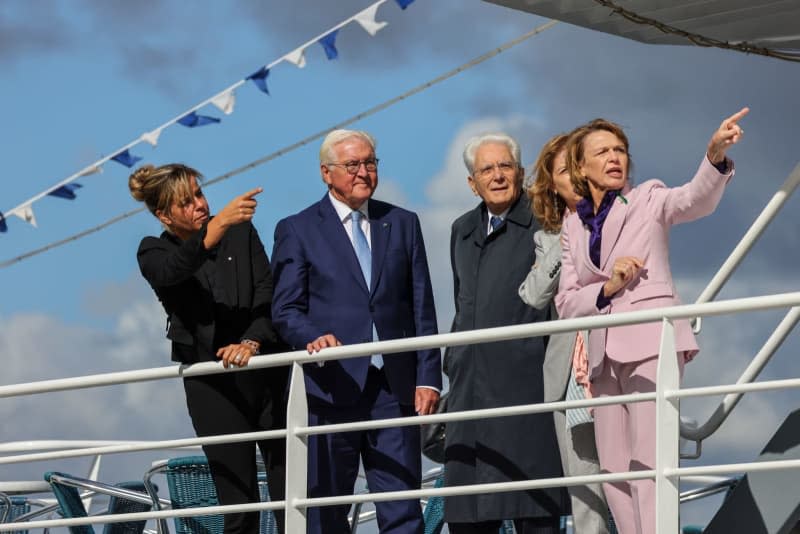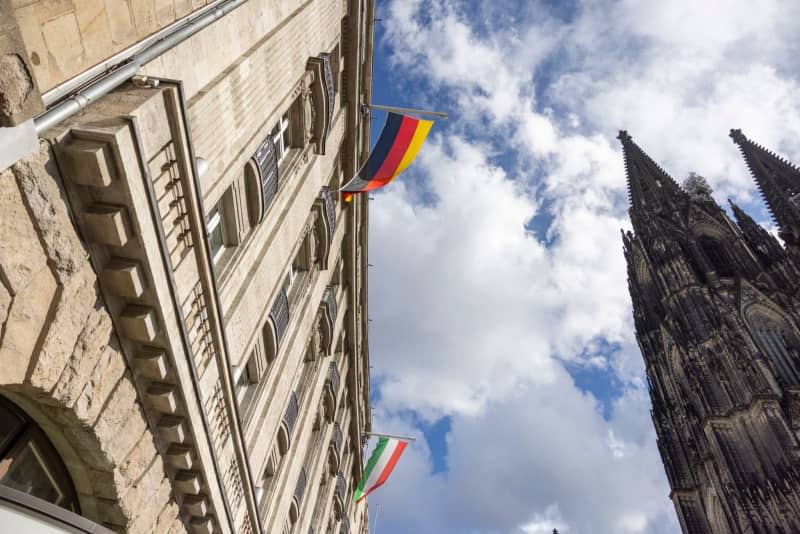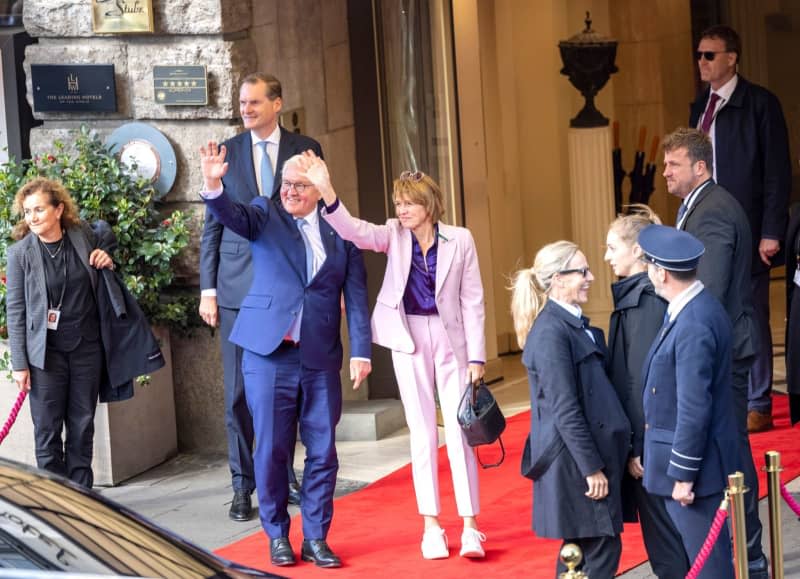As part of a three-day state visit to Germany, the Italian President Sergio Mattarella was visiting the state of North Rhine Westphalia on Saturday, including attending a climate conference in Bonn with German President Frank-Walter Steinmeier.
Steinmeier said that cooperation was essential in the fight against global warming. “The recent floods in Poland, Romania, Austria and the Czech Republic, as well as the fires in Portugal and Greece, illustrate the urgency of this task,” he said.
Italy and Germany are cooperating, among other things, on the establishment of a climate-neutral European energy system. There is also collaboration in meteorology for better forecasting of extreme weather.
Afterwards, the two presidents boarded a ship to travel down the Rhine to Cologne, where their programme includes a visit to the cathedral and a meeting with representatives of the Italian community.
North Rhine Westphalian Premier Hendrik Wüst noted in a statement that many people in his state have Italian roots. In the 1950s, many Italians came to the state as so-called “guest workers,” particularly to the industrial Ruhr area and the city of Cologne.
Wüst praised Mattarella as a thoroughly convinced European. “At a time when we need to stand together in Europe more than ever, President Mattarella lends his strong voice to this unity in Italy. Current European challenges such as migration, maintaining internal security and the future viability of the economy unite our two countries,” said Wüst.
Mattarella is considered one of the founding fathers of Italy’s Social Democratic Party.
Politically, he is far removed from Italy’s far-right Prime Minister Giorgia Meloni and her Brothers of Italy party.
On Sunday, Mattarella and Steinmeier plan to continue their journey together to Italy, where they are scheduled to participate in a commemorative event in Bologna marking the 80th anniversary of the Marzabotto massacre.
The massacre is considered one of the most severe war crimes committed by German soldiers in Italy during World War II.












